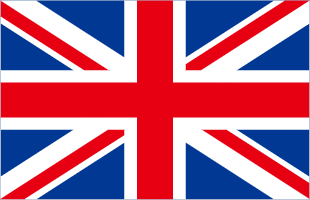The IP68 waterproof meaning is a combination of two things –dust-proofing (protection against solids) and water resistance. The numbers after the “IP” part signify both. The 6 is the solids resistance and the 8 is the water resistance. Understanding what IP68 means can be the difference between a functioning phone and one that dies if you happen to accidentally spill a drink on it.

Today, we’re going to talk about all you need to know regarding the IP68 rating. Let’s get started.
IP68 Waterproof Definition
The organization in charge of setting the requirements for these ratings is called the International Electrotechnical Commission or the IEC. According to the IEC, all ratings including the IP68 rating are supposed to work as a “system for classifying the degrees of protection provided by the enclosures of electrical equipment.”
These ratings include ones like IP67, IP68, and the IPX8. The numbers start from 0 and go up to 6 in the case of solid protection and 8 in the case of liquid protection. As such, IP68 offers the maximum protection against solids and liquids according to the IP rating system (6 and 8, respectively).
Any IP68 device is fully protected against all dust particles, sand, and smaller solids. It’s also rated to withstand moisture and liquids or even submerging in water up to a particular limit. The exact limit in the case of IP68 differs from manufacturer to manufacturer, but it’s roughly equivalent to withstanding submersion in water of up to 1.5 meters for 30 minutes or 1 hour.
The IEC only stipulates that the device needs to be able to withstand being submerged in water of up to 1 meter and for at least 30 minutes. If a manufacturer designs a device that can go higher than that (either the depth or the duration), it will still carry the same IP68 rating.
IP68 Technical Definition
Note that it’s not so black and white when it comes to the water resistance part of the IP rating. For example, the rating is given by testing the device in freshwater. As such, it doesn’t apply to other liquids such as oil, coffee, or even saltwater when you’re on a beach. Generally, it’s recommended to never submerge a device in saltwater as the salinity can creep through and cause damage to the internal components if for any reason the device’s protection isn’t at full capacity.
The IP68 rating is definitely the highest water resistance and dust resistance any device can get but it’s not a guarantee of any kind. But one thing that you can be sure of is that if a manufacturer is giving an IP68 rating, they are not using half measures.

For example, many devices simply mention “water-resistant” in their descriptions. This means that they are using a measure like rubberized seals or coatings to keep water out. IP testing is an expensive and time-consuming process. Any device that instead has the IP68 rating means that they are using an enclosure that’s water-resistant by design and not relying on less reliable measures to keep the water out.
As such, any device with an IP68 rating is inherently more protected against any kind of spill.
All IP68 devices are well-known to be fully protected against splashes, light rain, sweat, and moisture in the air. They will also work well against any water spillage on the enclosure itself. But submerging your device in water, especially water that could have other particulates, salt, or a higher density than normal freshwater, is not recommended.
Here’s the official description of IP68:
• Solid Protection (6): Complete protection against dust. Any contact with any dust particles will not have it get inside the device enclosure in any case.
• Moisture or Liquid Protection (8): Rated to withstand immersion in fresh water up to 1 meter and for 30 minutes at the very least. The manufacturer must supply exact information for the water depth and total duration as per its testing. Also, the device enclosure is completely sealed off against any moisture from rain, splashing, and accidental immersion in water for a few seconds.
That’s pretty much it. The IP68 rating is certainly the safest water and dust resistance rating that a device can carry. You can depend on IP68-rated device enclosures when it comes to protection against all sizes of solid particles and moisture. Check the manufacturer’s official test results to be sure of the exact depth and duration of water submersion, if that’s something you’re interested in.
In any case, it’s best to treat the IP68 rating as more of a failsafe or emergency backup than an inbuilt feature supposed to be actively used or tested. For example, making a quick call in the rain is a good emergency situation. Taking your phone in your pocket as you go for a swim is completely unnecessary. The bottom line is that you should always take the IP68 waterproof meaning as more of a guideline.

















